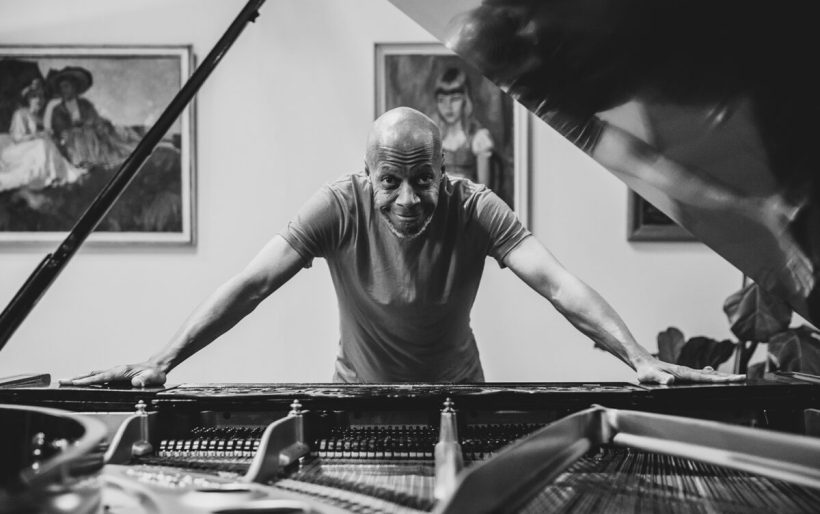By 1986, Laraaji had already lived several creative lives here on earth. In a recent conversation, he doesn’t remember much about his early childhood in Philadelphia, but says that his body was born in Hahnemann Hospital and lived in Germantown. Once his family took root in Perth Amboy, New Jersey, Laraaji discovered music and from there sound and performance would act as a vehicle for his spiritual journey. Around the age of 10, he took up violin and piano; his mother bought a piano for the house and invested in piano lessons. As he matured, Laraaji’s tastes grew to include a wide range of sound.
“I really dug music,” he says. “All kinds of music: jazz, R&B, folk. What was on my radar at the time was Ahmad Jamal, Oscar Peterson, Errol Garner, The Beatles, Frankie Lymon, The Motown sound, Aaron Copeland, Liberace…”
His growing interest in music brought him to the famed HBCU Howard University, where he studied piano and music composition. After four years at Howard, he pivoted and moved to New York city to pursue acting and standup comedy, all the while keeping his eye on music. “I thought that if I did comedy, I could make some money like Bill Cosby or Richard Pryor, rent a nice apartment, buy a grand piano and get back to writing music,” he recalls.
After performing in off-Broadway plays and working with the legendary Black talent agent Ernestine McClendon, Laraaji booked a role in Robert Downey Sr.’s 1969 surrealist satire of race and the American advertising industry, Putney Swope. While his appearance in the film may have garnered him a bit of exposure, a chance encounter at a poetry reading would cause him to question the film and his own role in media and the world’s political and spiritual consciousness.
“By being in the movie, I was inspired to research meditation and other internal, exploratory practices,” Laraaji recalls. “I wanted get a firmer sense of my spiritual identity and my spiritual message in the mass media. After the movie was released, I was walking in lovely Harlem when I came upon a church that was sponsoring a poetry reading. So, just as I came in a brother was reading a poem…and he ended it with ‘…. and the n_____s who did Putney Swope should be offed.’ After that, I thought ‘how much responsibility should I take for my participation in the mass media?”
Having grown up in the Baptist church, Laraaji had a firm spiritual foundation, but it was yoga and meditation pushed him toward making a qualitative change in himself and his art. Living in the Park Slope neighborhood in Brooklyn, Laraaji began a practice of sitting in meditation for 5 to 6 hours in the evenings. This nightly meditative practice opened Laraaji up spiritually. This awakened spiritual consciousness inspired him to begin cultivating a freer, more spontaneous approach to music-making.
“I began to sense that this spiritual core that all religions are relating to is everywhere/equally present and I could tap into it by stepping out of my personal identity for a while,” he says. “When I began connecting to that universal awareness, it influenced a shift in my music.”
